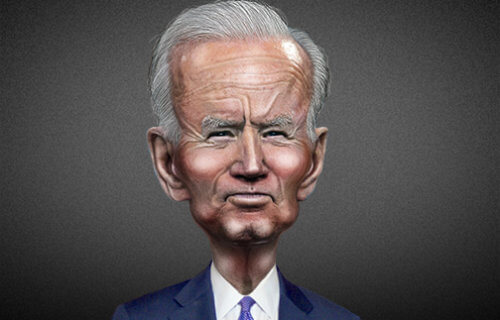GOTHENBURG, Sweden — Does American politics have an age problem? Researchers in Sweden say the United States is in danger of alienating younger adults who see their elected officials getting older and older every year. Despite making up half of the world’s population, people under the age of 30 lack government representation from people of their own generation. The study finds only two percent of people under 30 have a seat in a legislative assembly. A team at the University of Gothenburg suggests that underrepresentation of young people, especially in America, may cause democracy to suffer.
“The relative absence of young adults in politics could contribute to what we call the vicious cycle of political alienation among the young. It is marked by low numbers of younger people in parliaments, low voter turnouts, and political disenchantment – factors that tend to feed and amplify each other,” explains political scientist Aksel Sundström, in a university release.
The underrepresentation of young adults in government is most apparent in the United States. The team says 2023 marks another year where most of the influential American politicians are decades older than their voters. For example, President Joe Biden claims the title of the oldest sitting president in U.S. history at age 80. If Donald Trump runs and wins reelection in 2024, he will take the presidential office at age 78. Other branches of government show similar age disparities. The average age of those in the House of Representatives in office from 2020 to 2022 was 58 years old — 20 years older than the average American.
Where are all the young candidates?
In the current study, researchers collected data on the ages of 1,661 candidates running for office in the U.S. House of Representatives in 2020. They recorded the ages of candidates who received nominations, candidates selected during the primaries, and the age of candidates who actually won a seat. Researchers noticed a consistent trend — young candidates fared worse than older candidates.
“Both Democrats and Republicans nominated a relatively small percentage of younger people in favor of middle-aged candidates. The average age of the selected candidates was 51.5 years. Only about 11 percent of all the candidates were aged 35 or younger,” explains Sundström.
The average age of people who won their primaries was 54, and those who won their election were around the age of 58. One explanation for why young adults fare worse in political elections is because of “election capital.” Older candidates have more experience running a winning campaign and playing politics — gaining support from their respective party and collecting funds for their campaign. What’s more, the study authors note that political parties often place younger candidates in electoral districts where they have slim chances of winning.
Despite older politicians taking up a bulk of government positions, the study authors note that American voters do not prefer older candidates. In fact, there is often no ill will or discrimination against young people campaigning for office.
“According to a September 2022 poll by CBS News, 47 percent responded that politics would improve if there were more younger people in politics. Another survey in the USA indicated that 9 out of 10 Americans feel that 75 should be the maximum age for serving as President,” says Sundström.
In a new book, the study authors also outline the issue of the underrepresentation of younger people in democratic countries along with why younger people are more successful in winning seats outside of the United States. Sweden, for example, is one of the few countries where young adults have a high presence in government. For better representation, they recommend getting rid of rules that discourage young people from running in the first place.
“In the US, that threshold is 25 for the House of Representatives and 30 for the Senate. In our opinion, these antiquated and arbitrary rules regarding age violate democratic principles. Ultimately, the message turns out to be that younger people are not welcome to participate in politics,” Sundström concludes.
The study is published in the journal Electoral Studies.


I’m 57 years old and think there should be term limits on all our public offices. I would love to see the younger generation take over with a new way of thinking.
Same. The age limit should be the official retirement age for both houses and the presidency.
Age represents wisdom in navigation of the DC political machine. The problem is the Machine, political favors, power leading to corruption and detachment from the needs of the average US citizen. I see need to mentor younger, sharp minded candidates that are still inspired by public duty and willing to spend taxes wisely.